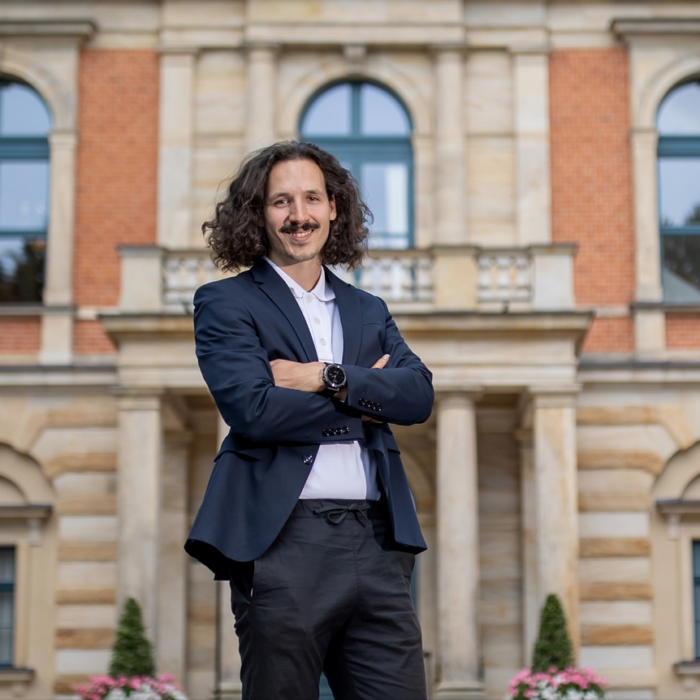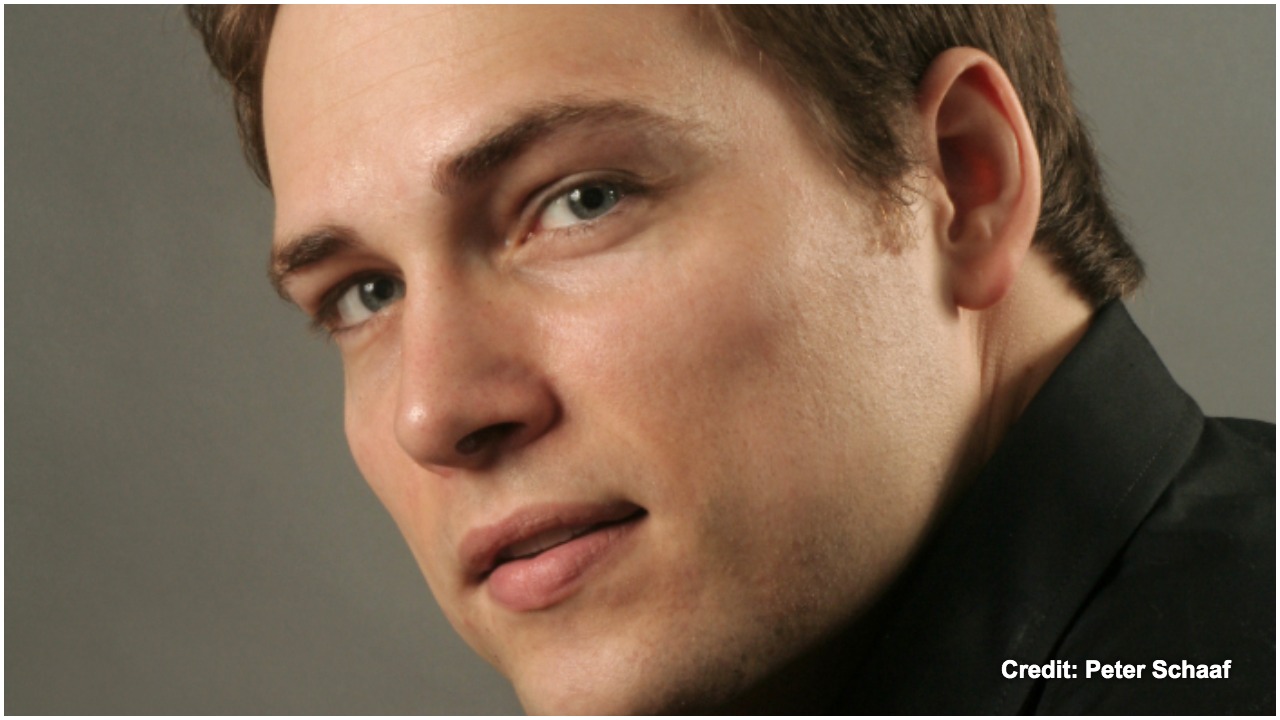
Interview: Soprano Kristine Opolais On Finding Herself Through Tough Times
Latvian Artist On Regaining Her Artistic Identity, Motherhood, & Puccini
By David Salazar“Every artist needs to go through difficult times. It’s important because it lets us remember who we are and the things we can and cannot do,” soprano Kristine Opolais told OperaWire in a recent interview.
Over the past few years, the Latvian artist has found herself questioning her own artistic identity and ending her marriage. She’s struggled with figuring out how to balance being a good mother and good artist. She’s even struggled with physical ailments that had been bothering her for years and were now interfering with her ability to perform.
But now she feels stronger for it.
“I am ready to give more than I have ever given,” she stated.
Losing Herself
Opolais admits that for better or worse, she has always been one to do things her own way. After all, this is an artist who decided to drop out of the conservatory despite being told repeatedly that she would never have an opera career if she didn’t finish her studies.
“If people tell me I can’t, I try and find the way to do it anyway,” she stated.
Her process comes down to immersing herself fully in a character and then just living the experience onstage, with warts and all.
For this reason, she loves rehearsals because she has the time and space to understand the characters’ emotions and anticipate the pain and suffering that she will have to endure when she gives herself over fully to interpreting the person in the performance. This kind of intense emotional approach comes with its risks for those that like things a bit more predictable, but it also allows the performer to be open to new possibilities onstage.
A few years ago, Opolais found her approach being increasingly questioned and a lot of advice was given to her to sit back, restrain her instincts, and “focus only on singing.”
She listened and adjusted.
“I started to lose voice power, presence, colors, everything,” she revealed. “People just wanted me to sing and that’s it. It shouldn’t only be about that. My singing is part of the complete package. Technique in singing is only important in how it frees you to give yourself completely to creating the character. If I only focus on singing a specific way, then I will lose out on opportunities of living the character and taking risks in the moment. As soon as you are limited and someone tries to put you in a box, it can kill you as an artist.”
She found herself increasingly “trapped” and other challenges were taking away from her being able to sort out her identity as an artist.
She was struggling with physical ailments that furthered the challenges of doing what she was advised to do. The soprano noted that she had been struggling with some physical issues for years but had not paid much attention to it until this point. Now, she could not look away.
And to top things off, in her private life she just didn’t feel she was able to give her fullest both artistically and as a mother for Adriana, who will turn seven at the end of December 2018.
“I couldn’t focus my brain on the arts because of divorce, heath issues and chronic tiredness, and also my daughter was going to school and I didn’t really have time for my art. It’s hard to be so-so everywhere so I wanted to give myself time to recover psychologically.”
Finding Herself
This decision to unwind allowed the soprano to come to terms with a few aspects of her life. She had to give her daughter a better life, but she also needed to go back to taking the artistic risks she always had.
So for a better part of 2018, the soprano spent more time in Latvia to be with Adriana as she commenced her elementary school studies in Riga.
During Adriana’s early years, the soprano had taken her daughter everywhere she could.
“When you give birth, you don’t really understand what is happening,” she noted, adding that she thought the best was just to have her daughter with her all the time.
But as Adriana grew, she realized it was selfish.
“For her to live in suitcases and have no friends and no real home, it’s cruel. She needs to start her life.”
So the soprano decided that Adriana would remain in Riga to understand “what it is to live in one place.” But being so used to being on the move, Opolais struggled with not being able to perform regularly.
“Adriana was happy to see me at home with her, but I was depressed,” Opolais noted. “And I knew that that was not good for her either. She needs to see her mother happy also. All women who are singers and mothers, I admire them tremendously because it is so challenging, almost impossible to do both at the same time really well.”
One might imagine that an international star like Opolais would be able to find a plethora of opportunities in Eastern Europe or specifically in Latvia to perform, but the soprano noted that it becomes increasingly difficult for her to dedicate herself to her art in her home country.
“At home, I am a mother, a daughter. When I get home, I try to just be there for my daughter. If I work at home, people tell me to take it easy. It’s not something I can do when I am performing. I need to be dedicated only to my art and at home I can’t be because I have to be there for my daughter.”
Then there’s the fact that Adriana isn’t really a big opera fan.
“One time I showed her a video a YouTube of me performing and she started to cry,” Opolais revealed. “I asked her why she didn’t like it and she said, ‘Because you’re crying.’ She sees me suffering and it hurts her. She’s very sensitive. Being the daughter of Andris Nelsons and Kristine Opolais, she has to be sensitive. And she is very talented, but she is also very shy.”
Meanwhile, the soprano, who also started taking better care of her physical health, was rethinking her artistic identity and consulting with the people who she trusted most.
Her conclusion? She had to do it her way.
The soprano noted that this return to her own identity came during the performance of “La Bohème” at Tanglewood in August 2018 under the baton of her ex-husband Andris Nelsons. Then she went on tour with the Gewandhausorchester Leipzig, also under Nelsons.
The results were widely lauded and Opolais couldn’t be happier.
“I am not afraid. I went through a lot of things, but now I understand that I love my art the way that I do it,” she enthused.
Understanding ‘Suor Angelica’
Now the soprano is at the Metropolitan Opera in the title role of “Suor Angelica” as part of Puccini’s “Il Trittico.” The production has placed a huge spotlight on Plácido Domingo for his 50th anniversary, but Opolais, who performed for the 50th time on the Met stage in the opening night performance, has found herself fulfilled by the experience and widely lauded for her interpretation.
“Ms. Opolais’ voice and commitment have grown considerably since her Mimì and Butterfly here; happily placed at the front of the stage, her voice rose into the auditorium, the tone rounder than previously, her fraught demeanor a pity to behold. As the terrible news dawned on her, her body sank to the floor; we watched a woman break,” wrote Bachtrack’s Robert Levine.
“Kristine Opolais was haunted and focused… her suffering and transcendence were chillingly real,” added the New York Times’ Zachary Woolfe.
It was the first time she performed the role on stage, despite having a recording released a few years ago. Per Opolais, that recording was done in two days with minor preparation. In fact, the experience went by so quickly that the soprano didn’t really understand the opera or character when she arrived at the Met in October for rehearsals.
The role is often noted as a “mini-Butterfly,” as both Angelica and the heroine of Puccini’s “Madama Butterfly” are made to suffer for the love they have for their children and ultimately commit suicide. Of course, Butterfly’s experience last far longer than Angelica’s, with the latter opera lasting only 50 minutes.
But for Opolais, Angelica is a far more challenging opera on many fronts.
Vocally, the soprano has always noted that she takes time to warm up in a performance. And while the character is onstage from the start, she doesn’t really have much to sing until halfway through the work when she is confronted with the news that her son has died.
“At the start, Angelica is most challenging because it doesn’t really give you time to warm up your voice before you are asked to give it all. You have to sing with everything for the reaction of your son’s death, then you have the quiet ‘Senza Mamma’ and then you have to sing with all your voice non-stop until the end. It’s crazy.”
The soprano noted that when she ends the performance, she feels exhausted emotionally, but vocally she is ready to continue.
“My adrenaline is so high when I finish Angelica that I am suffering because I feel like I just warmed up my voice and I want to keep going,” she confessed. “I feel like I still have more energy and more to say. I think that Puccini might have preferred to see one woman sing three roles in all the operas.”
But the bigger challenge for the soprano is understanding Angelica’s psychology and emotional challenge that comes with interpreting it.
Again, the comparison with “Butterfly” is inevitable. A few years ago, the soprano noted that when she first had Adriana, singing “Butterfly” was mortifying because she felt the loss of a child very intensely. Now her perspective has shifted somewhat on the role, as she feels that Cio-Cio San’s sacrifice comes with the understanding that her child will be in a better place without her. Opolais noted that she felt this way because of her own personal experience of seeing her daughter living a better life despite the two being apart for some time periods.
But she noted that she is “too emotional” for “Suor Angelica,” which she finds “heavier psychologically than Butterfly’ and living the part onstage is painful for her to endure (she also noted that the same happened to her with “Jenufa” and she ultimately decided that she could never give her best in the role and withdrew from a number of planned performances).
“When she gets the news that her son is dead, she should probably die right there. She doesn’t need poison. I feel pain in my stomach during this moment. I know what it means to give birth. So when you lose your child, you have a feeling right there, this great loss in your entire body. She should die right there.
“That’s why for me it is a bit tricky to have to sing after that. What keeps her living? I think that what happens then is that she is losing her mind.”
The soprano chronicled how the challenge of taking on the opera for the first time made rehearsal period challenging. Rehearsals were minimal for all three operas, given that conductor Bertrand de Billy had to split up his own time with rehearsing three different scores, while the Met Opera’s own technical departments had to dedicated separate blocks to the three works individually.
So with the truncated rehearsal period, Opolais found herself adapting to the stagings, but being unable to delve deeper into the psyche of the protagonist.
But something clicked during the opening night performance. Opolais experimented a bit more with how she approached the staging, and then she “understood that I didn’t need to be so active in certain parts. It had to be more internalized. ‘Senza mamma’ is Angelica out of her mind. She’s talking to the baby.”
Looking Forward To More Puccini
The soprano has often been associated with the music of Puccini. She has performed leading roles in such operas as “La Rondine,” “Manon Lescaut,” “Tosca,” “La Bohème,” and “Madama Butterfly,” in addition to “Suor Angelica.”
And she’s not done yet with adding Puccini to her repertory.
She noted a desire to sing all three soprano roles across “Il Trittico,” adding that she feels most comfortable with Giorgetta from “Il Tabarro.”
But the role she feels ready to do is Minnie from “La Fanciulla del West,” which she revealed she has always wanted to do.
“I knew I needed to wait a while to be ready for it,” she explained. “It is a heavy role for the soprano. You need two voices. You have to go through the orchestra on the top notes, but you have to find a balance so that you don’t push your voice too much up there with your body. You have to be a bit more metallic without being too aggressive in the upper notes. And then the rest, the lower notes, have to come with your body.”
She noted that she will likely give herself two years to prepare the role, adding that it is her favorite Puccini opera, alongside “Tosca.”
Of course, the soprano’s next few productions are as the famed diva who lives and dies for love and art. She appears as “Tosca” at the Vienna State Opera in January followed by performances of the opera at the Royal Opera House in the Spring.
I feel very well how to build the character of Tosca on stage! This is not only about to have strong high Cs and sing loud, this is the easiest part, the harder part is how to create the role of Tosca showing that she is not just a stupid jealous woman, but very powerful passionated and charismatic woman!”
The soprano also noted that she is set to reprise the role of “Manon Lescaut” in upcoming seasons and is also set for her first “Adriana Lecouvreur” at some point in the near future.
When it comes time to taking on all these challenges, she won’t be second-guessing herself anymore.


